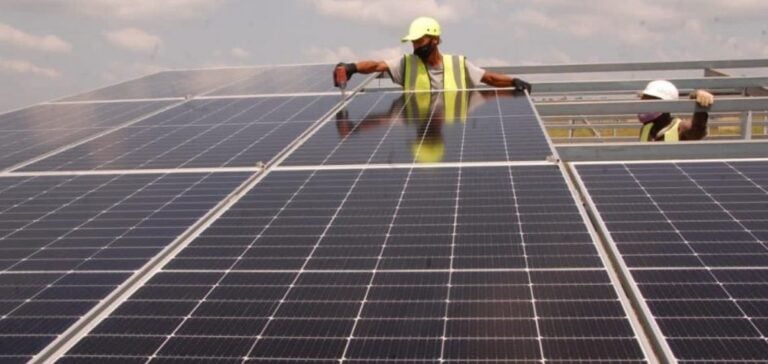Guinea-Bissau is turning to solar energy to decarbonize its electricity production and accelerate the electrification of its population. The government of this West African country is supported by the World Bank Group in its Solar Energy Development and Access to Electricity project, with a commitment to 2030. The World Bank, based in Washington, D.C., USA, has already approved a $30 million donation.
Project funding and objectives
The World Bank’s subsidiary, IDA (International Development Association), will also contribute $35 million, and a grant of $2.65 million will be provided by the World Bank’s ESMAP (Energy Sector Management Assistance Program). In addition, the GCF (Green Climate Fund) has committed $10.5 million to the implementation of the Solar Energy Development and Access to Electricity project. The main aim of the initiative is to accelerate electrification. Currently, only 33% of Guinea-Bissau’s population has access to electricity, compared with around 58% in the capital, Bissau. Electricity is not only scarce, but also very expensive, making it one of the most expensive in Africa, according to the World Bank’s resident representative in Guinea-Bissau. Yet the country has significant untapped solar resources, which represent a fast and cost-effective solution to the energy deficit.
Construction of solar power plants and storage units
The project focuses on the construction of several solar power plants and battery power storage units, with private-sector participation. A 30 MWp solar power plant will be built near Bissau to reduce the average cost of electricity and diversify the energy mix. According to Guinea-Bissau’s Ministry of the Economy, Planning and Regional Integration, battery storage will initially be used to smooth the injection curve and subsequently to provide services to the power system.
Installation of hybrid mini-grids on islands
The government of Guinea-Bissau will also support the installation and operation by private partners of mini-grids on two or three Bijagós islands (Bolama, Rubane and Bubaque). The mini-grids will be powered by renewable energies, with 500 kWp photovoltaic capacity combined with batteries or diesel generators. These installations will supply electricity to 1,200 homes, shops, hotels and other small and medium-sized businesses. For the World Bank, the project will benefit residential, commercial and industrial consumers throughout Guinea-Bissau, including the islands. It will also support the government’s efforts to create a favorable environment for private sector participation, stimulate economic growth and create green jobs.
This project represents a major step forward for Guinea-Bissau, which will be able to harness its solar resources to improve access to energy, reduce costs and support sustainable economic development.






















